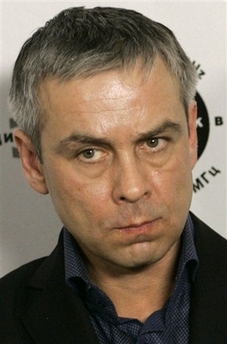Radiation linked to ex-spy contact
(AP)Updated: 2006-12-11 09:59
HAMBURG, Germany - Traces of the rare radioactive substance polonium-210 were found at a German apartment visited by a contact of fatally poisoned ex-spy Alexander Litvinenko - before the two men met in London, authorities said Sunday.
Tests on traces of radiation at the apartment "clearly show that it is polonium-210," Gerald Kirchner of the Federal Radiation Protection agency said at a news conference.
Investigators said Kovtun flew to Hamburg from Moscow with Aeroflot on Oct. 28 and departed for London on Nov. 1. That is the day when Kovtun and at least one other Russian met with Litvinenko at London's Millennium Hotel - and when Litvinenko is believed to have fallen ill.
Traces of radiation also were found in the passenger seat of a car that picked Kovtun up from the Hamburg airport, on a document Kovtun brought to Hamburg immigration authorities and at the home of Kovtun's ex-mother-in-law outside Hamburg - all from before the Nov. 1 meeting.
German prosecutors did not say whether they suspect Kovtun might have been involved in Litvinenko's death. But they said they were investigating him on suspicion he may have improperly handled radioactive material.
"At this stage of the investigation, we have sufficient initial cause to believe that he brought the polonium traces to Hamburg outside his body, or that these traces are the result of contact with polonium-210," prosecutor Martin Koehnke said.
Officials said that any connection between Kovtun and Litvinenko's death would have to be investigated by British police. British police are treating his death as a murder.
"We still believe that both variants are possible: that he may be a victim, but also that he may have been involved, at least in procuring the polonium," Koehnke said.
Litvinenko, an ex-Russian agent who was a fierce Kremlin critic, died Nov. 23 after blaming Russian President Vladimir Putin for the poisoning. The Kremlin has vehemently denied involvement.
Kovtun reportedly is being treated in Moscow for radiation poisoning. Russian authorities have opened a criminal investigation into his poisoning, calling it attempted murder.
Kirchner, the radiation agency official, said it was possible Kovtun could already have been poisoned when he arrived in Hamburg and left behind traces through body fluids such as sweat.
On Saturday, the German plane aboard which Kovtun flew from Hamburg to London tested negative for traces of polonium-210. Investigators raised the possibility that may be because the plane had been cleaned thoroughly.
A security officer for Moscow's Sheremetyevo airport said all Aeroflot planes, including the one which flew to Hamburg on Oct. 28, had been checked for radiation and tested negative. The officer spoke on condition of anonymity because he wasn't authorized to speak to the media.
| 1 | 2 |  |
|
||
|
||
|
|

